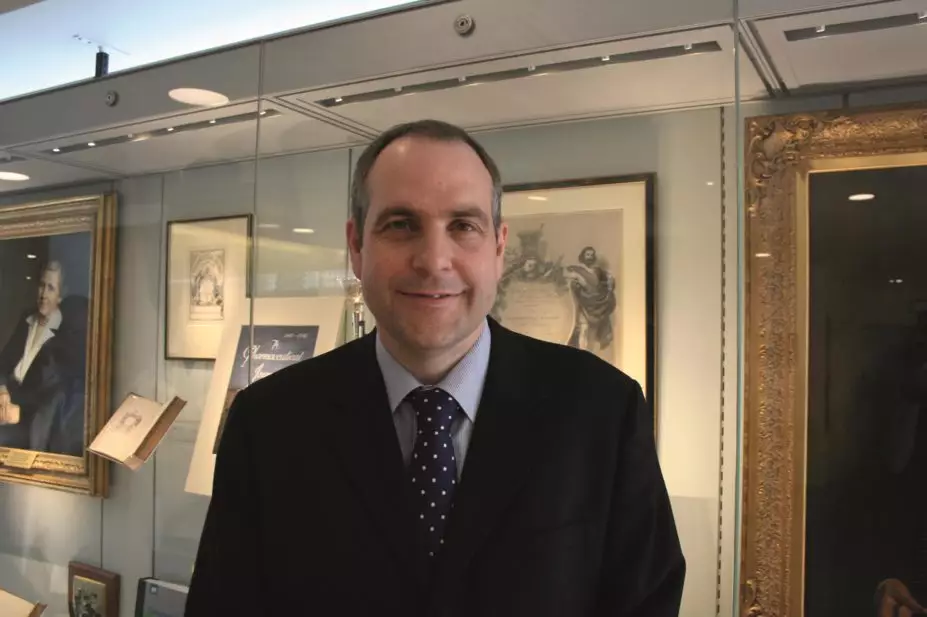
Royal Pharmaceutical Society
The Royal Pharmaceutical Society’s (RPS’s) English Pharmacy Board (EPB) met via Zoom on 8 October 2020. In addition to board members, those at the meeting included Paul Bennett, chief executive of the RPS; Ravi Sharma, RPS director for England; Sandra Gidley, president of the RPS; Robbie Turner, RPS director of pharmacy and member experience; Gail Fleming, RPS director for education and professional development; Gino Martini, RPS chief scientist; Sue Kilby, chair of the RPS’s Industrial Pharmacists Forum; Amandeep Doll, RPS inclusion and diversity co-ordinator; Hanna Jenvey, RPS events and sponsorship manager; John Lunny, RPS public affairs manager; and Heidi Wright, English practice and policy lead.
Apologies were received from board member Hemant Patel.
COVID-19 response team
Ravi Sharma said that, during the peak of the pandemic, the RPS COVID-19 response team had undertaken a huge amount of advocacy and government lobbying, and that weekly meetings with ministers and stakeholders were likely to be taking place again soon. Looking ahead, Sharma asked the board what else the team should focus on.
Martin Astbury, vice-chair of the EPB, suggested the team look at learnings from how flu vaccinations have been delivered differently this season, so that, if pharmacists are involved in mass COVID-19 vaccinations, those learnings can be put to use.
Board member Andre Yeung said that many GP practices were still not using electronic repeat prescriptions (ERPs): given that these benefit local pharmacies and patients, especially at this time, this would be a good area of focus, he said. Sharma responded that while the use of ERPs had increased during the pandemic, it was “probably still not at a level we’d like”.
Sue Kilby said that the pandemic had led to an increase in demand on homecare services, with more patients managed outside of secondary care on medicines not normally managed through community pharmacy. She added that pharmacists in homecare are “often overlooked, but they are vital”, especially in hospitals trying to set up homecare services in different specialities. Kilby asked that the team “be cognisant of pharmacists working in home care — how will they managed going forward with COVID?”
Inclusion and diversity
Amandeep Doll said that, to date, 252 people had joined the RPS’s Action in Belonging, Culture & Diversity (ABCD) group, with 60 people attending the group’s first meeting, which was held on 27 August 2020. Doll noted that ABCD membership was, at present, predominantly pharmacists, and also comprised mainly of women and people from black, Asian and minority ethnic communities. The group, Doll said, wanted to look at broadening membership to include more people from other sectors and, demographically, “we may want to look at broadening [membership] from an allyship perspective”, including those in leadership positions.
At the first meeting, Doll said a key finding was that members through the RPS needed to take more of an advocacy role in inclusion and diversity matters, by holding “organisations and employers to account” and being “more vocal and more public”. The group also felt there needed to be more acknowledgement of a lack of diversity at leadership level and more help to “empower individuals to raise concerns”.
Education update
Gail Fleming said that the first sessions of community pharmacist consultation service (CPCS) training — Health Education England (HEE)-funded online training delivered by the RPS and the Royal College of General Practitioners — had begun, with 5 cohorts of 24 people joining sessions in the first week of October 2020. Fleming added that the team was also thinking how, beyond the end of the programme, “we can continue to help pharmacists develop skills, and make people aware of the different products and services we offer”.
The RPS’s consultant pharmacist post approval service, which launched earlier in 2020, had received at least 18 posts for review across a breadth of specialities, Fleming said. She added that, before the RPS took over post approvals, there were around 100 consultant pharmacist posts, meaning that those received already represented a 20% increase. Consultant pharmacist credentialing for individuals was expected to launch by the end of October 2020.
Fleming also noted the RPS’s work with HEE to support the interim foundation pharmacist programme, which includes the curriculum and providing all registrants with an e-portfolio and access to a bespoke support line — adding that she was “really pleased with how we’ve done”. In response to a query from board member Brendon Jiang, Fleming said that the majority of provisionally registered pharmacists had signed up for the foundation programme, noting that “they are very focused on the registration assessment”.
Finally, Fleming noted that Peter Kopelman, current chair of the Education and Standards Committee, would soon reach the end of his tenure and so the Society would advertise for a new committee chair.
- The date of the next English Pharmacy Board meeting was set for 3 February 2021.

